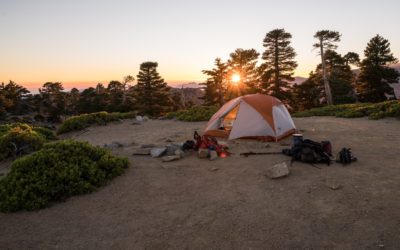Economic and community development in rural Peru through sustainable tourism
Patacancha is a cold, barren town perched high in the mountains of Peru’s Sacred Valley of the Incas. Without the narrow dirt road hugging steep ridges and making its way from the nearby town of Ollantaytambo, it would remain an indigenous Peruvian village disconnected from the outside world.
In fact, until as little as fifty years ago the town lived as such, isolated and remote. The Spanish language was nearly nonexistent and until Peru’s political strife penetrated the valley, so was national identity. It wasn’t until a mere 30 to 40 years ago that a market economy was introduced to the village, connecting them to the 21st century and changing their way of life.
Still today very little Spanish is spoken. While the community continues to adhere to traditional Quechua practices, diligently tending to their fields and raising cattle, there is one major difference that sets them apart from their neighboring counterparts.
As tourism surrounding Machu Picchu took off in the 80s, so did the men of the households, finding work as porters and cooks on the trail while aiding treks to the iconic ruins and around the Valley. Leaving the women to tend to the livestock in addition to their responsibilities in the home left less and less time to keep up with traditional means of living and providing for their family, such as weaving as a way to clothe the family and keep warm.
These weavings, which once communicated societal status by the quality and intricacy of their work, quickly became replaced by commodities the dollar can buy, including used jeans and synthetic dyes for faster reproduction of artisanal goods to now be sold in markets.
While this story may resonate with many other villages, the aforementioned difference here is that tourism has recently began to directly benefit Patacancha through the rise and demand in voluntourism and community development.
Weaving into the Future
Awamaki, meaning hand-woven in Quechua, is a NGO located in Ollantaytambo (the departure point for Machu Picchu some 45 minutes below Patacancha) that connects families and the rural poor to sustainable economic opportunities through eco-tourism and local cooperatives.
Aside from their homestay programs, Quechua community visits and language classes, Awamaki heavily focuses on providing village women with the opportunity to connect with the global market while simultaneously preserving their traditional weaving practices, preventing it from becoming a lost art.
Their Women’s Cooperative Program currently supports 60 women ranging in age from 15 to over 95-years-old, the largest of five co-ops throughout the Urubamba valley. Merging northern and southern culture, they are learning how to measure their traditional pieces for international clients and utilize new technology to maintain consistency with their dye and spooling process. These skills increase their access to market affording them with a reliable source of income. And, taking advantage of nearly a half a million tourists visiting Ollantaytambo yearly, the women also sell their products through a fair trade store that reinvests profits back into the community and perpetuates a sort of financial independence to better care for their families.
I recently witnessed firsthand the impact tourism has on community development and the success these women have earned by establishing a connection with the sustainable tourism industry.
Traveling extensively has also taught me that while national economies benefit from tourism, often the local communities are left without receiving any of the benefits and profits. In some cases, then, my positive intentions to interact with and understand the world do not always come with the most positive outcomes. If the village of Patacancha had not embraced local tourism, it’s loss would not only be economic growth, but the loss of full family support as community members continued to work in the tourism industry of a larger scale outside their home.
That’s why it is our responsibility as global citizens to seek out responsible tourism, pairing our travels with community development that allows us to give back what we take as travelers.
Next time you are traveling consider, how am I benefiting this community by being here and visiting? What action can I take to leave this place better than how I encountered it?



 What has been your experience with sustainable tourism and community development?
What has been your experience with sustainable tourism and community development?










I have been to Peru twice and I have a very strong interest in the protection of minorities and indigenous peoples cultural identity. I have not been to Patacancha although I have visited the Urubamba valley a few times. Your post stresses a very important issue: keeping a cultural identity alive in the modern, globalised world. The key has been underlined by the UN Human Rights Committee in its General Comment 23/50 on article 27 of the ICCPR: a traditional way of life (which includes traditional economic activities) can be considered as such even if practiced through modern systems and as such is worthy of protection. You provide a very good example of a common issue. Thank you for sharing!
Thanks for such a thoughtful response, Claudia. I hope more communities can find a balance between participating in a global market (through tourism) while maintaining and preserving a traditional way of life. These women have definitely proved that it can be done successfully! Thank you for reading!
What an interesting place, to think they were cut off from the modern world for such a long time! I’m glad that the women are keeping their traditions and able to earn some income by selling their products – I would love to buy something!
It is remarkable to think how recently their lives have changed and the extent to which globalization affects so many communities just like Patacancha. I hope you get a chance to visit Peru and meet these women as well!
I have so much respect for these woman, they always manage to stay strong. Great pictures also
Thank you, Axelle! They really are an inspiration.
“Traveling extensively has also taught me that while national economies benefit from tourism, often the local communities are left without receiving any of the benefits and profits.” So true and something a lot of people aren’t aware of unfortunately. Beautiful post and pictures.
Glad to hear this resonated with you, Sandra. Being aware of who benefits from our tourism is always a positive and important thing to keep in mind while we travel.
Great post! In order to help sustainable tourism, I try to buy any crafts from local, fair wage merchants. I’m willing to pay a premium to do so, as I find it very important to promote traditional artisans and continue their cultural heritage.
Great, Dave! Its good to hear you support traditional artisans in such a way. I’m sure there are similar situations in Ethiopia? Happy travels!
Amazing post! I agree with Dave – the premium to buy a FAIR wage from locals is essential. Beautiful photos and beautiful writing 🙂
Thanks, Alli! You are completely right about paying fair prices for their work. Sometimes we as tourists, especially long-term travelers, look to barter, barter, barter for the cheapest prices which is at times is acceptable, but not always. Thanks for reading!
Sometimes we forget about the importance of responsible tourism. Thanks for sharing the story of Awamaki and these beautiful, talented women as a reminder.
And thank you for reading, Mindi! Safe and happy travels to you!
Great post! Thanks for making us more aware of sustainable tourism and the benefits to local communities. When I travel I always try to make something to keep a memory from the trip and that way support the local economy. It was really interesting to read this article. Well done!
Thanks Pedro! I’m glad you enjoyed this post and that it resonated with your own travel style. Thank you for the support!
Beautiful photography! This story is really interesting and also an important reminder that we should try to support the local community any way we can while we travel. I am very fascinated by Peru because of there are some stunning treks (not the Inca Trail!) and of course the culture too. I am positive I will make my way there within the next few years 🙂
Thanks you Annika!! As a fellow photographer and trekking enthusiast I can assure you that you will have an AMAZING time when you make it to Peru. And get in touch when you do make it, I’d love to join you on the trail! xo
Very interesting! I agree with you, us travellers have an enormous impact and responsibility on the development of such areas. Good to see that this place seems to have turned out well and promotes local crafts, products and homestays!
It truly was a great experience to learn from these women and see firsthand how our travels impact their development. I would love to go back and participate in a homestay! Thanks for reading, Els!
Great Story, I love it when the local communities can actually benefit from Tourism. So often you find only the large cities, and governments benefit and the local people in the smaller areas are left out. We always try to buy local crafts, and give then a fair price for their work. Normally the quality is really superior. Love these women so strong! Thank you for sharing!
Good to hear, Stacey! It’s great you seek out local crafts and souvenirs, I think it really encourages these women to keep going and contributing to their own local economies. Thanks for reading!
As the world is further globalized I think it becomes more important to foster cultural identity and keep crafts like this from disappearing.
Agreed! It would be such a shame for cultures to lose history and tradition in order to keep up with globalization. Here’s to hoping we can help in some way!
We’ve visited few minorities too in Asia and, as you said, you need to consider if you are going for responsible tourism or not, if the money you will spend will go to the community or to some governement guy and they won’t see any of it.
It’s good to see that you can visit those areas through responsible tourism! Clearly in my book when we get to the area!
It’s a fine line because many of these developing countries benefit greatly from tourism in general, but in my opinion it’s always best to give directly to those you interact with and with whom you can establish a relationship. You’ll definitely enjoy when you make it to Peru!
It’s great to see local communities benefiting from tourism. I try to buy locally made crafts when I’m travelling but often it’s difficult to tell who is benefiting.
That’s true, Elaine. Sometimes it is difficult to tell who benefits which is why we should seek out, as best we can, authentic artisans and tourism experiences with local business. Happy travels!
Great post! I reckon we should all think about our impact when travelling to such destinations. I had an amazing experience staying with locals in the middle of the rainforest, and was glad to help them by buying some of the artwork they make. It’s great to hear when you can find cooperatives or NGOs that take eco-tourism seriously.
Thank you, Hector! It’s great to hear you had a similar experience! And I agree, those that take eco-tourism seriously on a large scale should also definitely be supported. Cheers!
Nicely written post! Its great to see how they are helped to preserve their culture. This should be the case everywhere. A place when attracting large tourists should not loose their cultural heritage due to it.
Thanks, Sumit! It would be great to see this cultural preservation paired with sustainable tourism in many, many more communities throughout developing countries. Where there is passion to make a difference a difference will be made.
Love Peru, Next time we will do some crazy hikes. It’s always sad to see culture change and adjust to real times. Some of the most magical places are changing do to travelers.
I would love to get back there soon for some more hiking as well, David! Being my first time to Peru I spent the majority of the month I was there experiencing as much as I could in a relatively short amount of time that I skipped over some great trekking. There’s always next time! Cheers!
I’ve somehow only just come across your blog, but it’s so interesting. Thank-you! This sounds like an amazing project. I’m jealous of your time in this remote area of Peru. We travelled the high mountain road between Huaraz and Cusco and it was my favourite part of the country.
Awesome! I’m glad to have you here, Katie! There is sooo much to see and do in Peru – I can’t wait to get back to learn more! Cheers to new blogging buddies 🙂